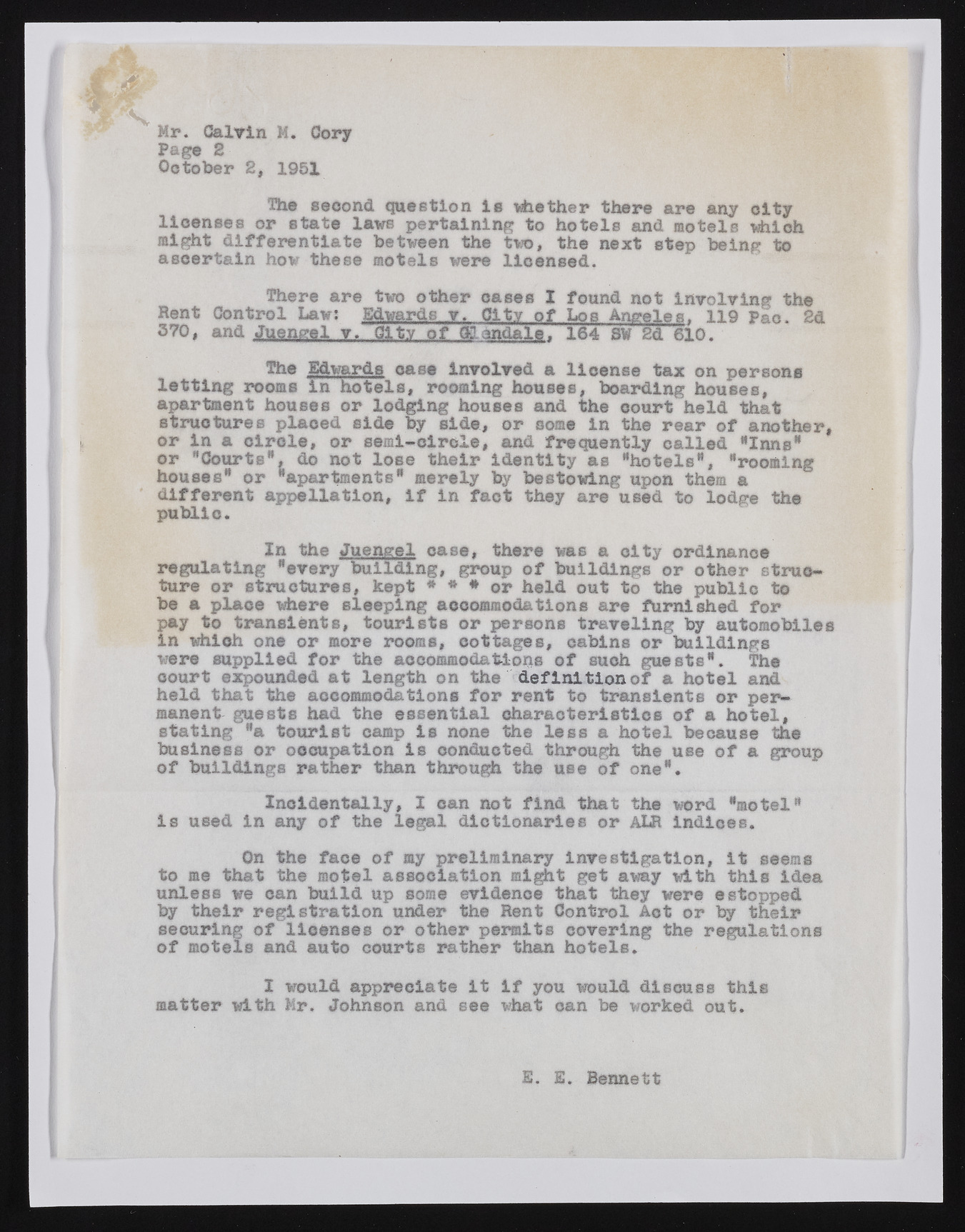Copyright & Fair-use Agreement
UNLV Special Collections provides copies of materials to facilitate private study, scholarship, or research. Material not in the public domain may be used according to fair use of copyrighted materials as defined by copyright law. Please cite us.
Please note that UNLV may not own the copyright to these materials and cannot provide permission to publish or distribute materials when UNLV is not the copyright holder. The user is solely responsible for determining the copyright status of materials and obtaining permission to use material from the copyright holder and for determining whether any permissions relating to any other rights are necessary for the intended use, and for obtaining all required permissions beyond that allowed by fair use.
Read more about our reproduction and use policy.
I agree.Information
Digital ID
Permalink
Details
Member of
More Info
Rights
Digital Provenance
Publisher
Transcription
Mr. Calvin M. Cory Page 2 October 2, 1953. The second question Is whether there are any olty licenses or state lavs pertaining to hotels and motels vhich might differentiate between the two, the next step being to ascertain how these motels were licensed. There are two other oases I found not involving the Rent Control Lav: Edwards v. City of Lob Angeles. 119 Pao. 2d 370, and Juengel v. City of (Eandale. 164 SW 2d 610. The Edwards case Involved a license tax on persons letting rooms in hotels, rooming houses, boarding houses, apartment houses or lodging houses and the court held that structures placed side by side, or some in the rear of another, | or in a circle, or semi-circle, and frequently called "Inns* or "Courts*, do not lose their identity as “hotels", "rooming houses* or "apartments* merely fey bestoving upon them a different appellation, if In fact they are used to lodge the public. In the Juengel case, there v&s a city ordinance regulating "every building, group of buildings or other structure or structures, kept * * * or held out to the public to be a place where sleeping accommodations are furnished for pay to transients, tourists or persons traveling by automobiles in which one or more rooms, cottages, cabins or buildings were supplied for the accommodations of such guests”. The court expounded at length on the definition of a hotel and held that the accommodations for rent to transients or permanent- guests had the essential characteristics of a hotel, stating "a tourist camp is none the less a hotel because the business or occupation is conducted through the use of a group of buildings rather than through the use of one*. Incidentally, I can not find that the word "motel* is used in any of the legal dictionaries or ALR indices. On the face of my preliminary Investigation, it seems to me that the motel association might get away with this Idea unless we can build up some evidence that they were estopped by their registration under the Rent Control Act or fey their securing of licenses or other permits covering the regulations of motels and auto courts rather than hotels. I would appreciate it if you would discuss this matter with Mr. Johnson and see what can be worked out. E. E. Bennett

